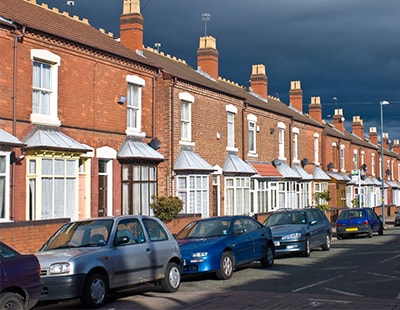At any given moment it’s difficult to say which issue dominates our marketplace, but I think it’s fair to acknowledge during 2017 that issue was leasehold. Be it the furore over developers and builders selling leasehold houses, or whether it was the overly onerous terms that many leaseholders are having to deal with such as escalating ground rents and the sale of freeholds to investment companies who go on to charge unreasonable fees for consents to let or alter.
Here at the Conveyancing Association (CA), we also drew attention to the actions of Lease Administrators, a number of whom are – quelle surprise – also intent on charging extortionate amounts for key paperwork, sometimes duplicating charges across numerous requests, and at the same time taking an absolute age to provide that paperwork, thus holding up both remortgaging and the purchase of leaseholds.
We also do not like the fact there is no central register of these Lease Administrators, because often just finding out who is the person ‘in charge’ can take a lot of detective work.
All in all, you might say that moving through 2017 and into 2018, leasehold and its abuse has become a central theme in our marketplace, and with much more media attention, there needs to be some considerable change taking place.
This is no doubt why we’ve already seen the banning of leasehold for new-build homes, and one would hope that there’ll be further proposals, measures and legislation around helping those already deemed ‘leasehold prisoners’ who are sat in properties unable to refinance them or sell them on.
Interestingly, part of our solution has been to ask the government to review Commonhold as a system of freehold tenure for multi-occupancy buildings, as an alternative to leasehold.
Our belief has been for some time that Commonhold effectively solves many of those issues mentioned above such as escalating ground rents, the sale of the freehold in order to make a substantial profit, and the rise in fees and premiums to leaseholders in order to allow them to, for example, extend leases and make alterations to the property.
Now, it would seem that the Law Commission might well be in agreement with us, it having recently launched an eight-week call for evidence to find out what might be behind the fact there are only 175 commonholders in England – needless to say that part of this is the fact large profiteering cannot go on under Commonhold, but there are historically some other reasons why the take-up hasn’t been as we might wish.
We too, have wanted to get to the bottom of why Commonhold hasn’t been utilised as much as it should have and, as part of this, we met with the APPG Commonhold Academics last year to work out any ‘technical issues’ which might be stopping it becoming more common.
We came up with just half a dozen which, let’s be honest, were highly technical and could actually all be solved by simple amendments – for example, the fact that if you had commonholders responsible for different percentages of the maintenance charge for different common parts e.g. where they had an equal share in maintaining the garden but some units had different numbers of parking spaces allocated so should pay a different percentage, this could be argued as not possible within the Commonhold Regulations. Actually, this could be solved by changing the regulations to add an ‘s’ to the word ‘percentage’ in the regulations. It would truly be as simple as that.
Indeed, these technical problems were not borne out by a survey the CA undertook last year among existing Commonholders with the vast majority very happy with their arrangement.
Plus, those that have also owned leasehold property said they would choose Commonhold over it. And as for the ‘argument’ that the great British public would not understand Commonhold well anyone who grew up watching condo living in the Golden Girls, Frasier or, for the millennials, New Girl, understand Commonhold.
This Law Commission ‘Call for evidence’ does seem like a further step in the direction of providing an alternative to leasehold and we, of course, will be issuing a response which details all the work we’ve completed to date in this area.
It is rather embarrassing that only 20 Commonhold developments have been created in law since 2004, but this shouldn’t stop us lobbying for greater use of it because ultimately this will be a much better solution for the vast majority of those currently constrained by their leasehold terms, and struggling to deal with the financial costs of it, and (very sadly) those who feel like prisoners in their own homes.
This can’t be right and the sooner we move to a system which embraces Commonhold, the better for everyone.
*Eddie Goldsmith is Chairman of the Conveyancing Association (CA)





















Join the conversation
Be the first to comment (please use the comment box below)
Please login to comment